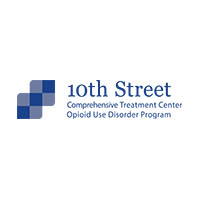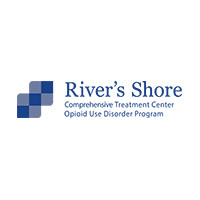
1&th Street Comprehensive Treatment Center, MAT
10th Street Comprehensive Treatment Center
4800 S 10th St, Milwaukee, Wisconsin 53221 | (414) 269-4335
Located in Milwaukee, Wisconsin, 10th Street Comprehensive Treatment Center (CTC) offers premier outpatient addiction treatment for adults age 18 and older of all genders who are struggling with opioid use disorder.

Rivers Shore Comprehensive Treatment Center, MAT
Rivers Shore Comprehensive Treatment Center
3707 N Richards St, Milwaukee, Wisconsin 53212 | (414) 386-5859
Located in Milwaukee, Wisconsin, River’s Shore Comprehensive Treatment Center (CTC) offers individualized assistance for adults age 18 and older in overcoming opioid addiction.

Meta House
2625 N. Weil Street, Milwaukee, Wisconsin
Meta House helps women struggling with drug and alcohol addiction reclaim their lives and rebuild their families. We meet the unique needs of women and their children, ending the generational cycle of substance abuse.

Kevin Fleming, Ph.D.
Coach/Change Agent/Consultant
Milwaukee, Wisconsin 53205 | 1-877-606-6161
Grey Matters International, Inc and the work of Kevin J. Fleming, Ph.D.is not counseling or the professional practice of psychology. We help the brain do the changing with powerful technology that can dramatically reduce time,frustration, and money spent on your goals
Related Sites:
City of Milwaukee
Wisconsin Counseling Association
Therapy Milwaukee, WI
Counseling Avenues West, Bay View, Havenwoods, Jackson Park, East Town, Riverwest
Milwaukee is the largest city in the U.S. state of Wisconsin, the 30th most populous city in the United States, and 39th most populous region in the United States. It is the county seat of Milwaukee County and is located on the southwestern shore of Lake Michigan. According to 2010 census data, the City of Milwaukee has a population of 594,833.1 Milwaukee is the main cultural and economic center of the Milwaukee-Racine-Waukesha Metropolitan Area, with a population of 2,037,542 as of an official 2012 estimate.
Mental Health in Milwaukee
Milwaukee is home to over 10.5 percent of Wisconsin's entire population. The diversity and vibrancy of the city makes it an excellent place to live. However, because of the large population, there is also a high incidence of mental health-related problems.2 Thousands of children and adults in the city live with illnesses such as depression, eating disorders or anxiety, yet only 22 percent of those who need care get the therapy they need from the state's public mental health system. As a result, many of those who live with a mental illness end up in the criminal justice system rather than in treatment.3
Mental Health America Wisconsin advocates on behalf of residents to ensure that programs and counseling services are available to help improve their functioning and well-being. The Strong Families Healthy Homes Program is just one example of what the organization does for Milwaukee residents. The program focuses on home-based recovery services for individuals with a mental illness. Support services are provided for family caretakers as well. As a strengths-based program, the focus is on what the individual does well and encourages continued work and growth that is supportive of independent living. Additional information about this and other programs can be obtained by calling 414-276-3122.4
Current Initiatives
As the federal government moves ahead to meet goals for a mental healthcare reform on a national level, Milwaukee has already taken the initiative to forge their own path to mental healthcare changes at the county and city level. Milwaukee, and its respective county, passed a resolution in April of 2011 in an attempt to redesign the county's health care system. Referred to as the Redesign Initiative, the plans are comprised of sixteen goals that focus on making Milwaukee's mental health care system more community-based, person-centered, trauma informed, and recovery-oriented. Get more information about this initiative by calling 414-257-5255.5
References
1. Wikipedia. (2017). Milwaukee, WI. Retrieved from http://en.wikipedia.org/wiki/Milwaukee.2. Center for Urban Population Health. (2016). Milwaukee Health Report 2012. Retrieved from https://www.cuph.org/mhr/2012-milwaukee-health-report.pdf;jsessionid=9871BE50659961874DE5E30B5670DF80/.
3. National Alliance on Mental Illness. (2010). State Statistics: Wisconsin. Retrieved from http://www.namiwisconsin.org/documents/WIstatestats.pdf.
4. Mental Health America Wisconsin. (2017). Strong Families Healthy Homes Program. Retrieved from http://www.mhawisconsin.org/sfhh.aspx.
5. Milwaukee County Government. (2017). Redesign Initiatives. Retrieved from http://county.milwaukee.gov/MHRedesign.htm.
Milwaukee is a city that is located in multiple counties- Milwaukee County and Washington County and Waukesha County in Wisconsin. It has a land area of 96.18 square miles and a water area of 0.66 square miles. The population of Milwaukee is 600,155 people with 230,807 households and a median annual income of $35,958. .
Therapy Affordability Meter for Milwaukee, WI
Check for insurance or sliding scale fees
Counseling in this region can be difficult to afford for many people without insurance. Most people in Milwaukee are not able to commit to a weekly therapy session without proper budgeting. The good news is that counselors in Milwaukee may offer sliding scale fees or low cost options. Insurance may cover your sessions as well. Talk to your therapist to learn more. Low cost counseling and affordable therapy are also sometimes offered by listed city and university level clinics, check with your local Milwaukee public health department.
